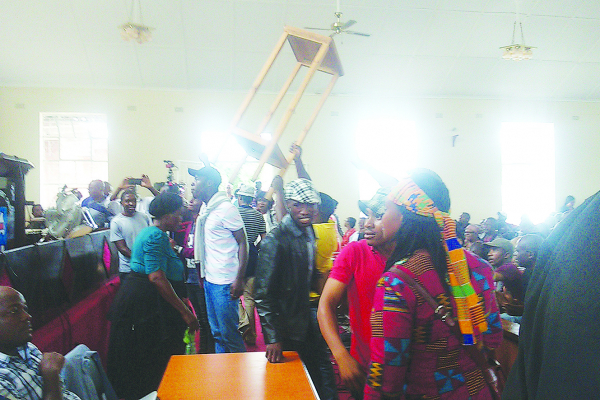
THE recent disruption of national healing consultative meetings by separatist Mthwakazi Republic Party activists, is a worrisome development and should be condemned in the strongest terms. NewsDay Comment
The peace-building and national healing consultative meetings are being spearheaded by the National Peace and Reconciliation Commission (NPRC) to heal the nation ahead of this year’s elections.
It, therefore, boggles the mind why some obscure group chooses to disrupt such a process in Bulawayo and Matabeleland region, where the majority of citizens still bear scars of past political abuses such as the Gukurahundi issue.
These disruptions come at a time people have been waiting impatiently for the establishment of this constitutional body, which is provided by under Chapter 12, Section 252 of the Constitution. Zimbabweans have been waiting for the NPRC to be set up since 2013, when the new Constitution was adopted.
This constitutional body, which has a 10-year lifespan only became operational last month, when President Emmerson Mnangagwa signed into law the National Peace and Reconciliation Act.
For almost five years now, former President, Robert Mugabe was dilly-dallying on the establishment of the NPRC, whose mandate include ensuring post-conflict justice, healing and reconciliation; to develop and implement programmes to promote national healing, unity and cohesion in Zimbabwe and the peaceful resolution of disputes.
What it means is that the commission is now left with about five years to meet this herculean task before it becomes redundant yet there is so much work to do including the resolving of the emotive Gukurahundi massacres in Midlands and Matabeleland regions and past electoral violence.
It, therefore, boggles the mind that a group which purports to represent the people of Matabeleland is putting more spanners along the way of the NPRC. What good is disrupting meetings being organised by the NPRC brings: simply because of the tribal composition of commissioners?
- Chamisa under fire over US$120K donation
- Mavhunga puts DeMbare into Chibuku quarterfinals
- Pension funds bet on Cabora Bassa oilfields
- Councils defy govt fire tender directive
Keep Reading
Isn’t it an issue the activists could have raised during the meeting rather than resorting to retrogressive disruptions? These commissioners did not appoint themselves and surely if there are concerns about the composition of the commission, these could be directed to the government, particularly Vice President Kembo Mohadi who is in charge of the national healing organ.
Disrupting NPRC meetings will only help to drown the voice of people in the Midlands and Matabeleland, who are eager to contribute and bring closure to the issue of Gukurahundi and other issues which needs national healing.
Very soon, the last five years of the NPRC will be over and will these activists take responsibility, if the commission fails to meet its mandate because of these disruptions?
We agree with Shalom Project Trust director, Anglistone Sibanda, who elsewhere in this paper accused Mthwakazi activists of misdirecting their anger and violating people of Matabeleland’s rights to be heard.
According to Sibanda, the disruptions by MRP serve the interests of the perpetrators who would not want the issue to be discussed and brought to closure.
It is our hope, therefore, that people in Midlands and Matabeleland should make steps to stop elements trying to disrupt meetings meant to bring closure to a very dark period in the history of country.







